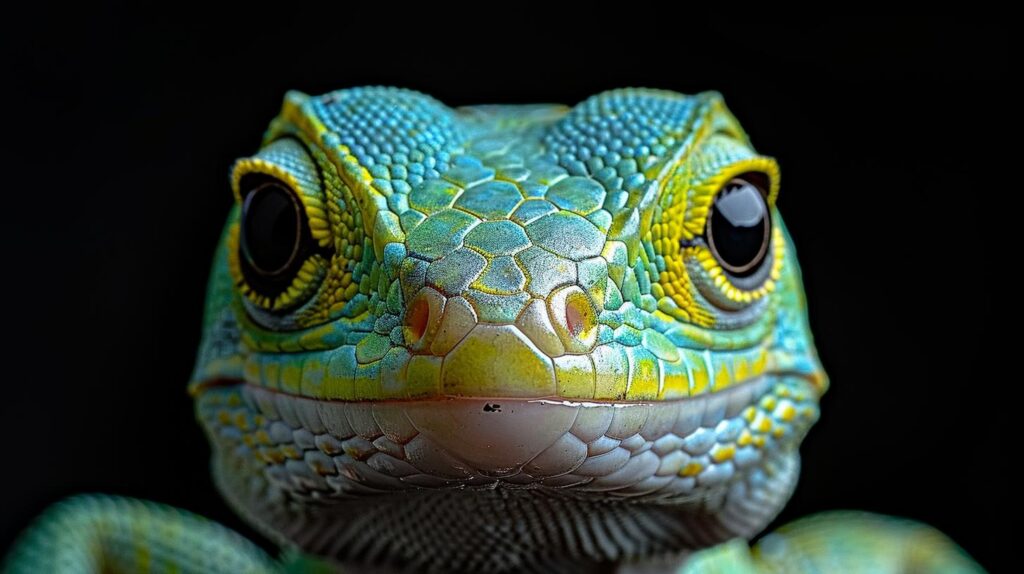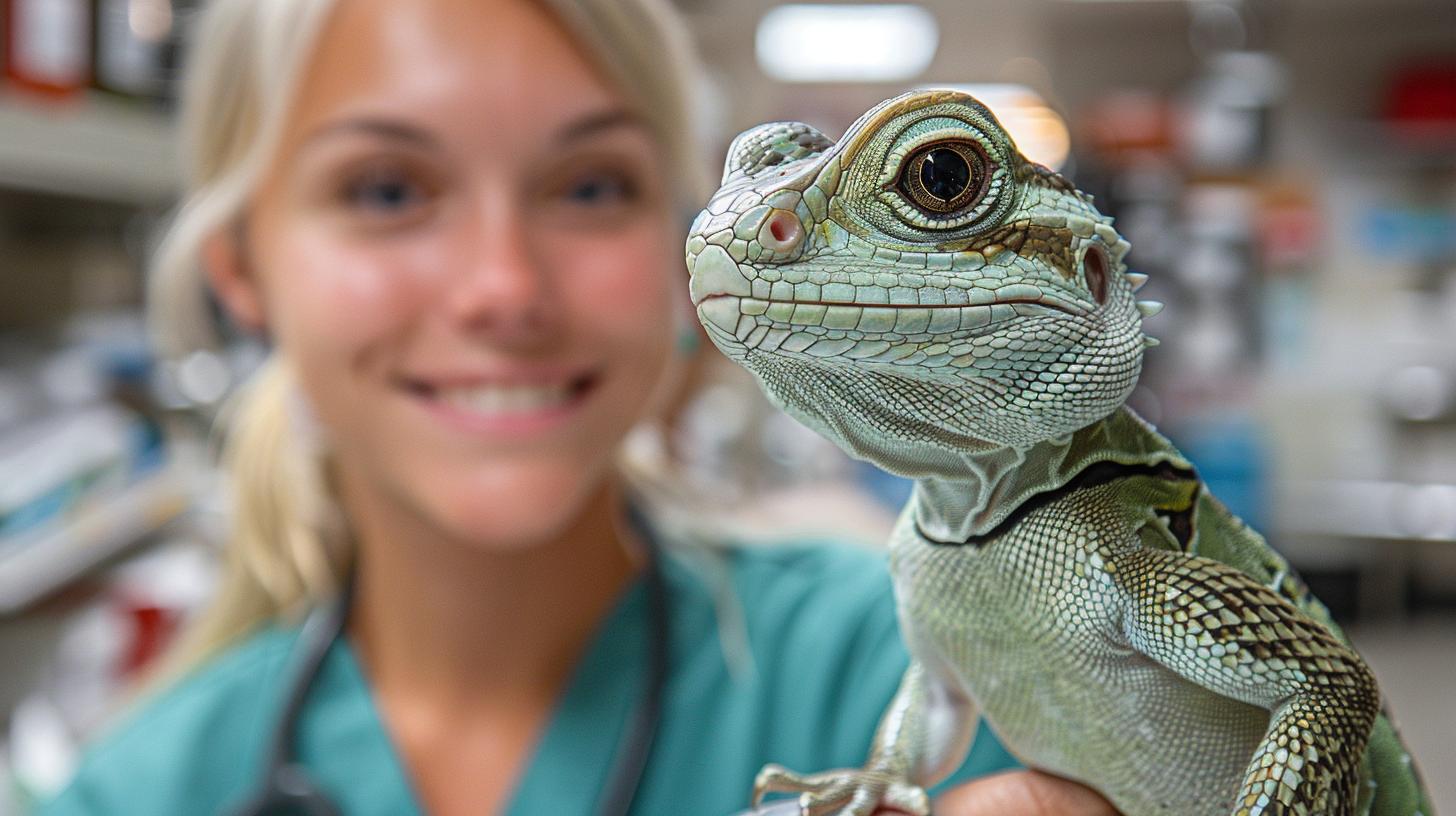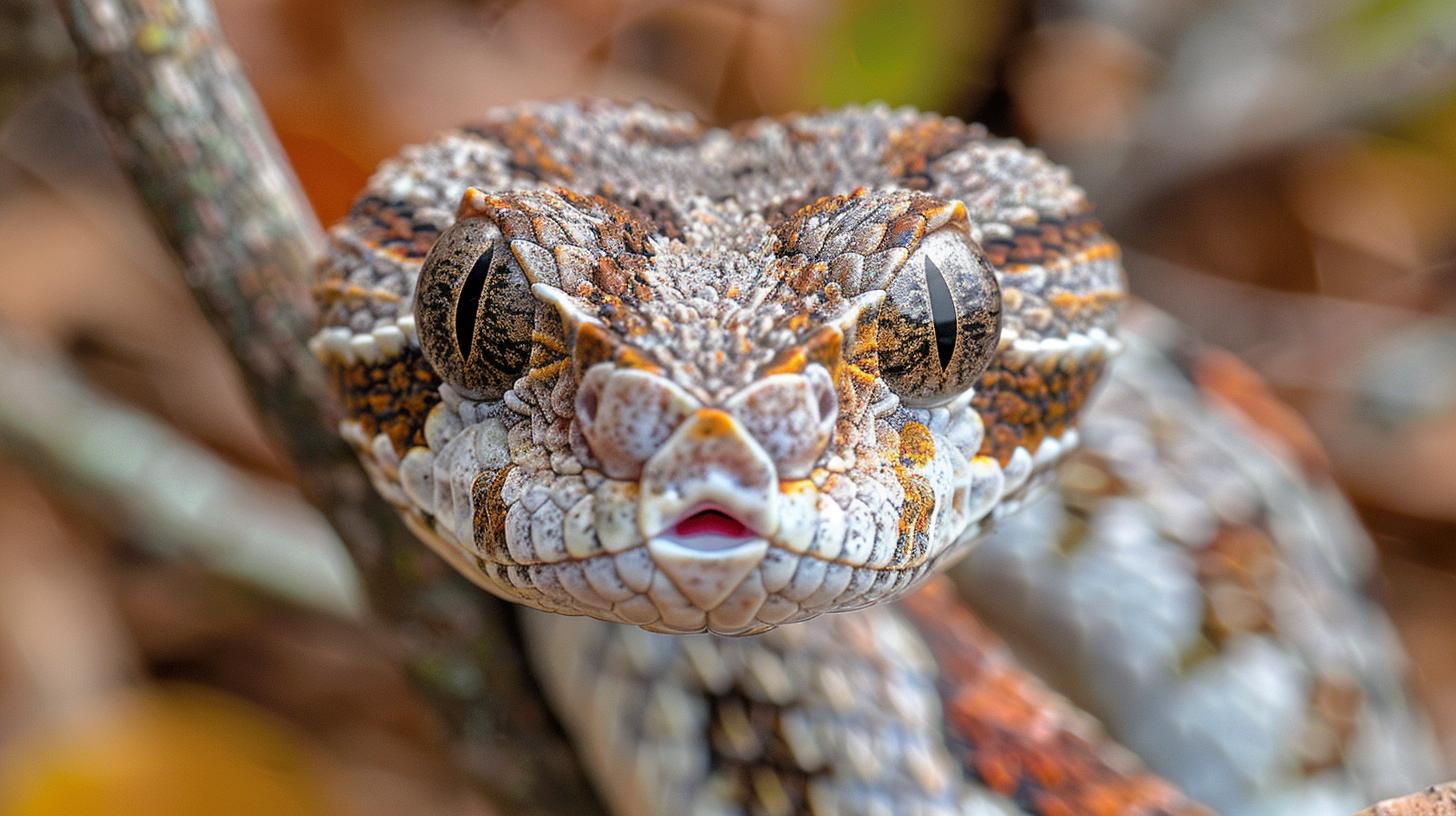3 Key Reasons to Schedule Reptile Health Screenings

- Understanding the Importance of Reptile Health Screenings
- Early Detection of Health Issues
- Contribution to Research and Understanding of Reptile Health
- Maintaining Optimal Health and Well-Being
- What to Expect During a Reptile Health Screening
- Choosing the Right Veterinary Care for Your Reptile
- Taking the Next Steps
- Frequently Asked Questions
Understanding the Importance of Reptile Health Screenings
In the realm of pet care, reptile health screenings are a fundamental aspect that warrants more attention. These screenings not only position themselves as pivotal preventative measures but also stand as pillars supporting the longevity and quality of life for these unique creatures. As reptilian pets continue to win over hearts, understanding the why behind regular health checks becomes imperative. This segment delves into the core reasons emphasizing the need for such vigilance in reptilian healthcare.
One cannot overlook the power of early detection when it comes to managing and treating potential health concerns in reptiles. Regular health assessments are crucial in identifying issues like nutritional deficiencies, parasitic infections, and other ailments early on. This preemptive approach significantly enhances treatment effectiveness and overall outcomes for your scaly companion. Uncovering problems before they manifest severely can mean the difference between a simple treatment plan and more invasive procedures down the line.
Moreover, when pet owners commit to routine reptile health screenings, they contribute valuable data towards the grander scheme of scientific research on reptilian health. Participating in these health checks provides researchers with critical insights that could pave the way for advancements in veterinary care tailored specifically for these species. Beyond immediate benefits to individual pets, this collective effort aids in refining healthcare protocols, thus improving life expectancy and quality of life for reptiles at large.
Shifting our focus towards maintaining optimal well-being, these screenings serve an undeniably central role. Through consistent monitoring and assessment, vets can offer personalized advice on diet alterations, habitat modifications, and other care-related adjustments crucial for preventing common yet avoidable health issues. Prioritizing regular check-ups embodies proactive stewardship-a commitment to ensuring every aspect of a reptile's environment contributes positively to its health and happiness.
Early Detection of Health Issues
Understanding the significance of early detection in reptilian health cannot be overstated, especially when it concerns maintaining your pet's wellness. Regular *reptile health screenings* are pivotal, acting as a crucial line of defense against the progression of potentially severe conditions. These health checks enable veterinarians to identify and address issues before they escalate, offering a better outcome for your reptilian friend.
Detecting health problems in their nascent stages through screenings can significantly alter the course of treatment and potential recovery. For instance, common issues like nutritional deficiencies, *parasitic infections*, and even early signs of metabolic bone disease can be effectively managed with timely intervention. This early diagnosis advantage underscores the value of incorporating regular health assessments into your pet care regimen.
During these reptile health screenings, several key evaluations take place:
- Physical Examination: A thorough check for any physical abnormalities or signs of illness.
- Fecal Exam: To screen for parasitic infections that could undermine your pet's health.
- Blood Work: Essential for detecting underlying diseases that might not yet be visible or affecting outward behavior.
Considering this, maintaining vigilance through scheduled screenings is more than just an act of precaution; it's a proactive step towards extending the life and improving the quality of life for your scaly companions. As we continue to explore this topic, it's clear that initiating regular screening procedures isn't merely beneficial-it's imperative for those wishing to safeguard the well-being of their pets.
Let's proceed to delve deeper into how these essential check-ups contribute beyond immediate care into broader scientific insights and advancements in reptilian medicine.
Contribution to Research and Understanding of Reptile Health
Regular reptile health screenings not only bolster the well-being of our scaly companions but also play a pivotal role in enriching the collective understanding of reptilian medical science. Each screening offers valuable data that can be aggregated to form a broader depiction of common health issues, effective treatments, and optimal care practices for various species.
With reptiles being relatively underrepresented in veterinary research compared to their mammalian counterparts, the importance of contributing such data cannot be overstated. This wealth of information subsequently supports advancements in reptilian medicine, leading to improved diagnostic techniques, treatment plans, and preventive care measures that benefit not just individual pets but the entire species.
In addition, participating in these health assessments provides a direct channel through which pet owners can contribute to scientific studies focused on reptiles. Many veterinary practitioners collaborate with research institutions to study disease prevalence, genetic disorders, and habitat influences on health among captive populations. By opting for regular screenings, pet owners effectively become citizen scientists, aiding crucial research efforts that pave the way for significant breakthroughs in reptile healthcare.
Moreover, through systematic collection and analysis of data from these health checks:
- Veterinary professionals are better equipped to identify emerging trends or outbreaks within certain locales or species.
- Information gleaned helps tailor public awareness campaigns targeting the specific needs and risks associated with keeping reptiles as pets.
- Ultimately fosters a global community committed to advancing reptile welfare and conservation efforts.
This relationship between routine health management and research underscores the dual benefit that reptile health screenings offer. On one hand, they ensure individual pets receive timely diagnoses and appropriate care; on the other hand, they contribute invaluable insights into overarching patterns that inform both current practices and future investigations into reptilian biology and diseases.
It's clear then that by embracing these screenings within our pet care routines, we are actively supporting not only the longevity and quality of life for our reptiles but also facilitating valuable contributions toward a deeper understanding of their unique physiological needs and challenges.

Maintaining Optimal Health and Well-Being
Reptile enthusiasts often prioritize setting up the perfect habitat or ensuring their pet eats a balanced diet but might overlook one of the most crucial aspects-regular *reptile health screenings*. Just like any other pet, reptiles can benefit immensely from preventative healthcare measures. Routine health check-ups are instrumental in maintaining not just the physical health but also the overall well-being of these extraordinary animals.
The primary goal of reptile health screenings is to monitor and detect any potential health issues before they escalate into serious problems. These screenings typically include a thorough physical examination, during which a veterinarian checks for signs of distress, physical abnormalities, and indications of common reptilian illnesses.
Additionally, diagnostic tests such as blood work or fecal exams may be conducted to assess internal health and screen for infections or parasites. This proactive approach allows veterinarians to address minor issues promptly and adjust care routines to better support the reptile's needs.
Beyond individual care benefits, regular health check-ups contribute significantly to understanding reptiles' unique healthcare requirements. Every visit provides valuable data that can aid in identifying patterns or common concerns within specific species, influencing both current treatment methods and future reptilian medical research. This shift towards preventive care not only improves the quality of life for our scaly companions but also enriches our grasp on properly nurturing them.
| Benefits of Reptile Health Screenings | Procedures Involved |
|---|---|
| Early detection of potential health issues | Physical examinations |
| Adjustment to care and diet based on health status | Blood work analysis |
| Aid in broader research for reptilian health improvement | Fecal exams for parasites |
Maintaining optimal well-being in reptiles requires an ongoing commitment from pet owners, advocating for routine *reptile health screenings* as part of their care regimen. The insights gained from these visits allow for tailored adjustments in diet, habitat conditions, and overall management practices that directly benefit your pet's long-term health. Moreover, this proactive stance on veterinary care empowers owners with knowledge and resources that ensure their beloved pets lead happy, healthy lives.
What to Expect During a Reptile Health Screening
Embarking on the journey of reptile ownership comes with its unique set of responsibilities, among which is the critical need for regular reptile health screenings. These screenings play an indispensable role in detecting early signs of health issues and ensuring that your scaly friend enjoys a long and healthy life.
Understanding what these health check-ups entail can significantly allay any apprehension you might have and prepare you for what to expect, making the process smoother for both you and your pet.
Reptile health screenings are comprehensive examinations tailored to assess the well-being of reptilian pets thoroughly. These screenings are crucial in preempting potential health problems that can be difficult to detect in the early stages due to reptiles' stoic nature. By opting for regular health check-ups, pet owners take a proactive stance in safeguarding their pets' health, which is essential for their longevity and quality of life.
Physical Examination
The cornerstone of reptile health screenings is the physical examination. During this assessment, veterinarians proficient in reptilian anatomy meticulously inspect your pet for any signs of abnormality or distress. This includes evaluating the skin for signs of infections or parasites, examining limb functionality, and checking for proper body condition and weight. Given that many illnesses in reptiles manifest through subtle physical changes, this thorough inspection is vital.
Diagnostic Testing
Beyond the initial physical evaluation lies an array of diagnostic tests designed to offer deeper insights into your reptile's health status. Blood work, fecal exams, and sometimes even X-rays constitute parts of this comprehensive approach toward diagnosing underlying conditions not apparent during a physical exam. These tests are invaluable in detecting infections, nutritional deficiencies or imbalances, and organ function irregularities among other potential concerns.
Nutritional Counseling
An often-overlooked aspect covered during *reptile health screenings* is nutritional counseling. Nutrition plays a pivotal role in maintaining the overall well-being of reptiles; thus, veterinarians will closely evaluate your pet's dietary habits to ensure they align with its specific needs based on species, age, size, and current health status.
This segment allows pet owners to gain personalized advice on optimizing their reptilian friend's diet with appropriate vitamins or supplements if necessary to foster optimal development and prevent nutrition-related ailments.
Ensuring your beloved reptilian companion undergoes regular *health screenings* isn't just about adhering to best practices in pet care-it's about embracing an active role in preventing illnesses that could otherwise go unnoticed until it's too late. With detailed knowledge on what these examinations comprise, owners can confidently advocate for their pets' health requirements.
Choosing the Right Veterinary Care for Your Reptile
Finding a good veterinarian is crucial for all pet owners, but when it comes to reptiles, whose healthcare needs can vastly differ from those of more traditional pets like dogs and cats, the task becomes even more critical. Selecting a vet with specialized knowledge in reptilian medicine isn't just about meeting your pet's immediate health needs-it's an investment in their long-term wellbeing.

Reptile ownership demands an understanding that these animals can hide symptoms of illness until it's too late. That's why it's essential to have a veterinarian who can conduct thorough reptile health screenings, being proactive rather than reactive. This approach helps in early detection of potential health issues that could become serious if left unattended.
Specialized Knowledge and Experience
The first step in choosing the right veterinary care for your reptile involves looking for clinics that offer services specifically tailored to the unique needs of reptiles. A vet with experience and training in reptilian physiology, diseases, and treatment options is far better equipped to provide high-quality care compared to general practitioners. Don't hesitate to ask prospective vets about their experience with reptiles and whether they've dealt with cases similar to what your pet might need.
Comprehensive Health Screening Capabilities
Beyond general expertise in reptile care, ensure that the veterinary practice you choose is well-equipped with the necessary tools to carry out comprehensive health assessments. This includes everything from diagnostic imaging equipment suitable for smaller bodies, like X-rays or ultrasound machines, to laboratories that can accurately analyze blood samples or fecal exams specific to reptiles. The ability of a clinic to perform detailed reptile health screenings should be a critical factor in your decision-making process.
A Proactive Approach to Reptile Healthcare
Lastly, look for veterinarians who emphasize preventive care through regular check-ups and education on how best to support your reptile's health at home. This includes discussing habitat requirements, optimal nutrition plans based on species-specific needs, and strategies for stress reduction which significantly impact a reptile's overall wellbeing. A good vet should not only address immediate concerns but also offer guidance on keeping your pet healthy long-term.
In sum, selecting the right veterinarian requires careful consideration of their specialization in reptilian medicine, capability for conducting thorough health assessments, and commitment to preventive care. By ensuring these criteria are met, you'll be taking an important step towards safeguarding the health and happiness of your beloved reptilian companion.
Taking the Next Steps
In wrapping up our exploration of the critical reasons to schedule regular reptile health screenings, we're reminded of the multifaceted benefits these checks offer to our scaly companions. From the outset, understanding the importance of these screenings lays a solid foundation for recognizing their value not only as preventive measures but as integral components of ensuring a long, thriving life for your reptile pets.
Emphasizing early detection through such health assessments can dramatically alter the course of treatment and recovery for common and rare health issues alike, reinforcing the mantra that prevention is better than cure.
Furthermore, contributing to research and broadening our comprehension of reptile health underscores a collective responsibility towards these unique pets. Through regular screenings, pet owners partake in a larger scientific endeavor, gathering invaluable data that propels forward our understanding and management of reptilian diseases. This participation doesn't just illuminate paths for future healthcare improvements but also solidifies a pet owner's role in fostering an environment where optimal health and well-being are achievable realities for all reptiles.
As we encourage you to take those crucial next steps toward integrating regular reptile health screenings into your care routine, remember that this practice isn't just an act of maintenance-it's an investment in your pet's quality of life. Choosing the right veterinary care tailors this experience to fit your reptile's specific needs, making each screening a stepping stone towards enduring health and happiness.
We invite you now to further engage with this topic and broaden your understanding by exploring more articles on our website. Dive into our content library where every click enriches your knowledge and equips you with everything you need to become an even better caretaker for your scaley friend.
Frequently Asked Questions
What Are Four Signs of Illness or Disease in a Reptile?
Recognizing the signs of illness in a reptile early on can be the difference between swift recovery and prolonged suffering. Four common indicators that a reptile might be unwell include changes in eating habits or appetite loss, unusual or lethargic behavior, irregular shedding patterns, and visible physical changes such as swelling, discoloration, or wounds on the body.
Observing these signs warrants immediate consultation with a veterinarian experienced in reptile care to assess the situation properly.
How Often Should Reptiles See the Vet?
Reptiles should visit the vet for a wellness checkup at least once a year. These annual visits allow for the monitoring of their health status and nutritional needs, adjustments to their habitat if required, and the early detection of potential issues that can be more effectively managed when identified early.
Additionally, new reptile owners are advised to schedule an initial vet visit shortly after acquiring their pet to ensure it's free from any hidden health concerns and to set up a baseline for future care.
How Often Do Bearded Dragons Need to Go to the Vet?
Bearded dragons specifically benefit from veterinary checks at least once annually for general health assessments. These checkups are crucial for reviewing their diet and environmental conditions since improper nutrition and habitat setup can lead to significant health issues over time.
However, if there are signs of illness or injury, or you notice any sudden changes in behavior or appearance, it is essential not to wait for the yearly checkup but instead seek immediate veterinary attention.
Is It Expensive to Take a Bearded Dragon to the Vet?
The cost of taking a bearded dragon to the vet varies widely depending on geographic location, the nature of the visit (routine check-up vs. emergency care), and necessary treatments or diagnostics conducted during the appointment (such as blood tests or X-rays). Generally, routine visits may range from $40 to $100+, while additional treatments will increase costs accordingly.
It's advisable for bearded dragon owners to budget for these veterinary expenses as part of responsible pet ownership and look into pet insurance options that cover exotic animals like reptiles to help manage unexpected healthcare costs.
Leave a Reply
You must be logged in to post a comment.